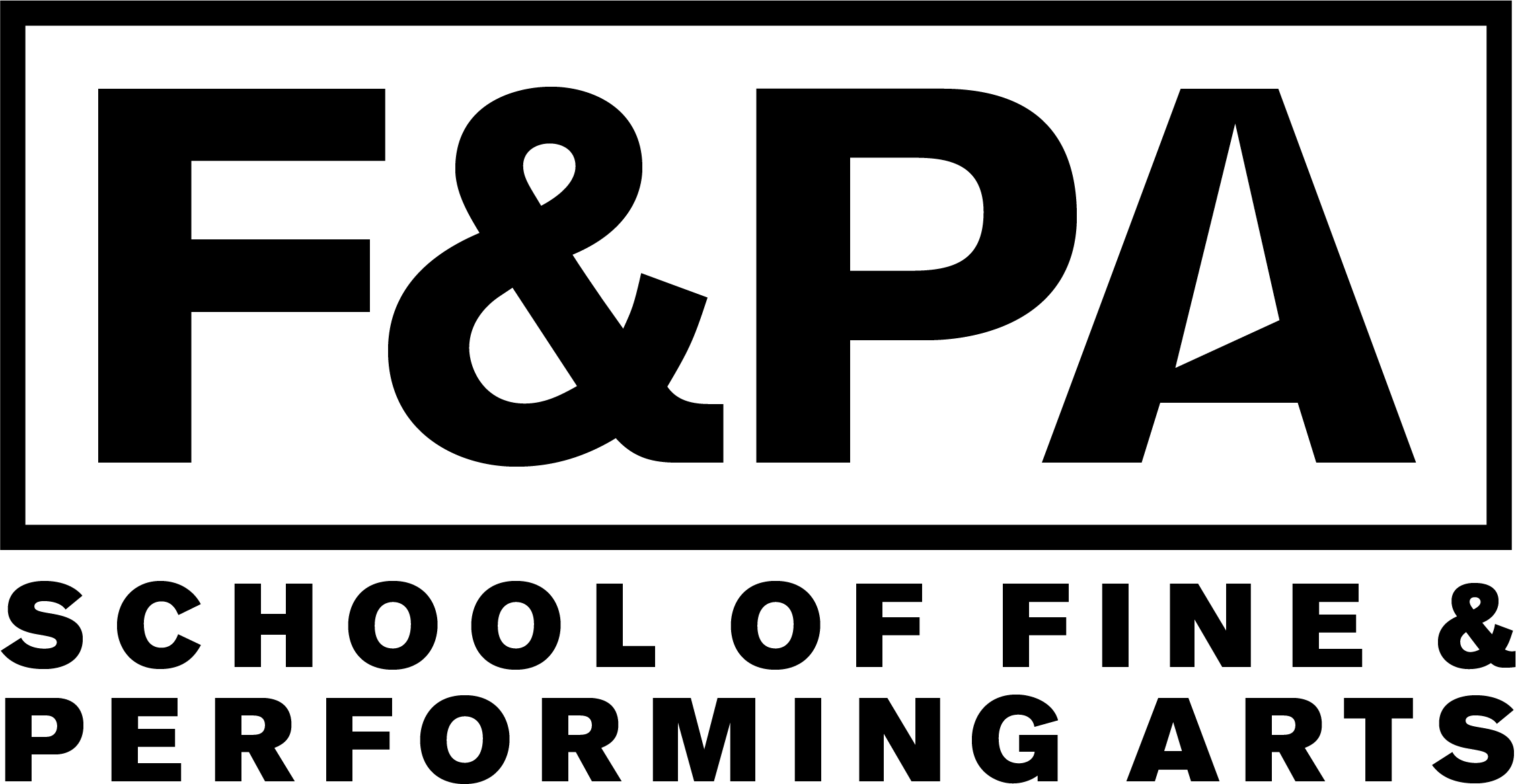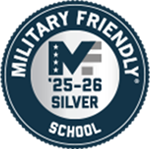Sculpture Studio:
The 10,000 sq. ft., well-appointed and managed Sculpture Studio in the Fine Arts Building provides ample space and tools to create sculpture and installations utilizing traditional and contemporary sculpture approaches including: woodworking, welding and metal fabrication, casting and moldmaking, soft sculpture, digital video/sound editing, 3D modeling, and interactive/robotic programming. The loading dock provides ground-floor access to loading materials and transporting artwork.
We hold the broad perspective that ‘everything is art materials, but not everything is art’. Students are encouraged to expand their practice by exploring the myriad of ways of making that sculpture offers and by taking elective courses in the other studios: Ceramics, Metal, Painting/Drawing, Photography, Printmaking, Wood Design, Digital Design and Fabrication, and Theater: Scenic and Costume Design.
Studio Space and Access:
The main sculpture studio serves students enrolled in sculpture classes and is open from 8 am to 11 pm daily. BFA and MFA sculpture majors are provided generous studio space in rooms adjacent to the main sculpture studio. BFA sculpture majors have studio access 8 am - 2 am daily*. MFA sculpture majors have 24-hour access, daily*. *w/ buddy system in effect
Sustainable Tools and Facilities:
Sustainability is interwoven in the Sculpture Program as we value educating students how to sculpt sustainable lives and careers. Sculpture’s portable wood mill affords us the ability to harvest and mill wood locally. The Wood Design Studio, a well-appointed and managed woodworking studio located one floor above the Sculpture Studio, is accessible to art students through classes or a small use fee. The Natural Ink and Dye Pollinator Garden, a collaboration between Sculpture and Printmaking, is a place to grow your own art materials – plants for natural dyes, inks and fibers for papermaking. Sculpture also shares a paper beater with Printmaking. Students can find free reuseable materials in the Sculpture’s Sustainable Materials Library.
Digital Design and Fabrication Tools and Facilities:
In the Sculpture Studio, students have access to a CNC plasma cutter, 3D modeling and digital imaging, video, and sound editing software, and micro-electronic equipment. Students may advance their art in digital fabrication and computer-aided design through the Digital Fabrication Lab, Hudson Valley Advanced Manufacturing Center, and the 3D ceramic printers in the Ceramics Studio.
Exhibition Space:
Students can experiment with the display of installations and sculpture in the Experimental Space and Critique Room in the Sculpture Studio. The Fine Art Building Rotunda and Graduate Photo Gallery in the Smiley Art Building may be reserved for experimental works, exhibitions and events. In addition, the faculty regularly support and collaborate with students to organize exhibitions off-campus. BFA and MFA sculpture majors exhibit their thesis work in the Samuel Dorsky Musuem of Art.
Local Resources:
The Hudson Valley is home to many renowned artists, art fabricators, and art destinations including Storm King Art Center, DIA Beacon, Art Omi, Wassaic Project, Mildred's Lane, and Mass MOCA. We frequently organize field trips to local artist studios, non-profits, galleries, and the many art destinations. Students intern with professional artists and fine art fabricators including Lite-Brite Neon, FN furniture, Jean Shin, Julianne Swartz, Martin Puryear, and Petah Coyne, etc. Students who want to dive deep into foundry processes are encouraged to intern at one of the two world-class art foundries nearby, Workshop Art Fab and UAP.
Art Lecture Series
The Student Art Alliance coordinates the Art Lecture Series, inviting several visiting artists to campus each semester to share their work and conduct studio visits with students. Our proximity to New York City allows us to attract a diverse list of exemplary contemporary artists, historians, and crtics such as Mel Chin, Carolee Schneeman, Martin Puryear, Lucy Lippard, Paul Ramirez Jonas, Janine Antoni, Ann Hamilton, Ursula Von Rydingsvard, Alfredo Jaar and many more.
SCULPTURE EQUIPMENT INCLUDES:
Wood Tools:
- 2 Sawstop Table Saws (set up for cross and rip cuts)
- 2 Band Saws
- Sliding Compound Miter Saw
- Panel Saw
- Drill Press
- Combination Disk and Belt Sander
- Router/Router Table
- Planer and Jointer
- Portable Wood Mill
- Many hand/powered tools: hand drills, saws, sanders, etc.
Metal Tools:
- 3 MIG, 2 TIG Welders, Oxyacetylene Torches
- Plasma Cutter with CNC table
- Shear Brake Roller
- Hydraulic Shear
- Horizontal and Vertical Band Saws
- Hossfeld Bender
- Anvils
- 2-ton Overhead Hoist
- Drill Press
- Charcoal Forge
- Many hand/powered tools: Die Grinders, Grinders, Nibbler, Spot Welder, Disk Sander, Files, etc.
Casting and Moldmaking:
- 2 ventilated Casting Rooms for plaster, alginate, silicone, slip and wax casting, and encaustic.
- Bailey and Amacco Kilns
- Bluebird Clay Mixer
- Formec Vacuum Former
- 2 small metal casting furnaces
- Many hand/powered tools: Die Grinders, Grinders, Nibbler, Spot Welder, and Disk Sander, Files, etc.
Other Equipment/Resources:
- Video/Sound Recorders and Projectors
- Photography Studio with LED lighting kits, backdrops, and DSLR camera
- Sustainable Materials Library
- Sewing Corner with Singer sewing machine and reuseable fabrics
- Arduino, micro-electronics, and soldering kits
- Paper Beater (shared in Printmaking)
- Natural Ink and Dye Pollinator Garden (Sculpture + Printmaking collaboration)
- Worm bin, compost bin, and mobile charcoal-making retort.

